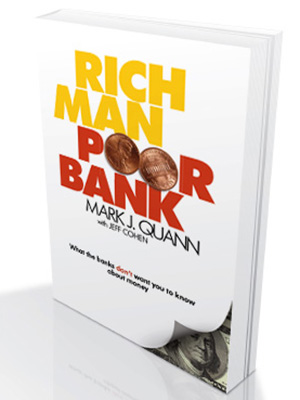Fuentes del Valle Bank Scam #2: How to Get Good Credit
Please be sure to read Bank Scam #1 (click here) before you read the other 9 scams. There may be important information in a previous post needed to understand each of the subsequent posts.
To uncover how “get good credit” is used to scam Americans out of their hard-earned money, let me tell you a story of my friend Kato (not his real name).
Kato is Japanese-American and immigrated to the United States about 20 years ago. Much like my family, he came here for the American Dream. When arriving in America, like so many immigrants, it just made sense to open an account at “Bank of America.” What could be more American than that, right?
Kato talked with his friends, family and coworkers, and all were going to the banks for advice about money–all were working hard to save money and get good credit. Kato was told, “To get the best credit score, you will need to use multiple credit cards.” Kato was very eager and after many years of saving and borrowing he had an “800” credit score. He also had $10,000 saved in a C.D., and $8,000 in credit card debt. In reviewing his statements, we discovered the average interest rate on his credit cards was 17%–while the C.D. was earning him less than 0.5%. buy gabapentin from india Kato was receiving $50 in interest each year–while paying interest of $1,360 back to the bank. When this scam is used outside of banking, they call it a “con.” A con artist earns the trust of others–while slowly stealing their money. This is an accurate description of big banking today. “Save money” is used to lure you into the bank and earn your trust–while “get good credit” is used to bury you into high-interest debt–preferably for the rest of your life. Children, immigrants, the elderly, and anyone else who does not understand how money works (the “99%”) is most vulnerable to this scam.
Currently Americans have been conned. They are carrying more than 600 million credit cards. Many even carry 7 credit cards in their wallet–issued from multiple big banks, department stores, and home improvement stores. They have been conned into accumulating trillions in credit card debt–while at the same time they save trillions in the big banks. They are earning virtually nothing–while borrowing back at high interest rates.
Fortunately the solution for Kato was simple:
- He cashed out his C.D. and paid off his credit card debt. He is once again debt-free.
- Kato saved a few thousand dollars in his local credit union. This emergency fund will help keep him out of debt for good.
- He was approved for a low interest credit card–issued from his credit union, not a bank.
- He pays his credit card off every month and has great credit.
- Kato will never borrow from a bank. Nor will he ever save in a bank again.
Yes, you should get good credit. Just never borrow from a bank to do it.
Yes, you should save money. Just never save money in a bank. Save in a not-for-profit credit union instead.
Yes, you should seek financial education. Just never ask a banker for the “education.”
My advice is simple. Never take advice from the bank about money. Find an advisor who can help you set saving/investing goals, and save/invest 10%. If you need help to get out of debt, consult with a local credit union for help. If you want to get good credit, talk with your credit union about how you can have the best credit score–while never paying any interest to any bank.
Remember, if you would like to become financially free, raising your financial IQ is far more important than raising your credit score.


 Mark Quann is an entrepreneur with a belief in the liberating power of financial education and a campaign to slash the toxic influence of big banks and credit companies.
Mark Quann is an entrepreneur with a belief in the liberating power of financial education and a campaign to slash the toxic influence of big banks and credit companies. 





No comments yet.